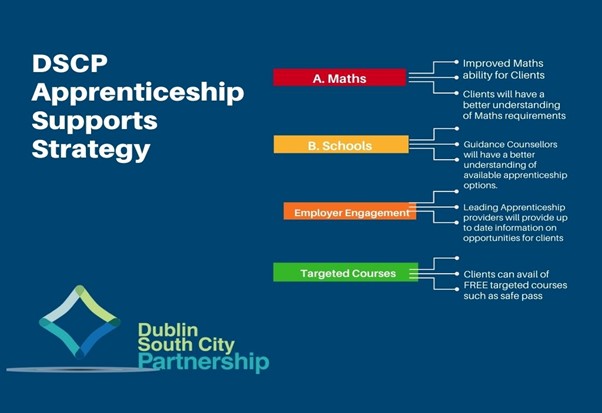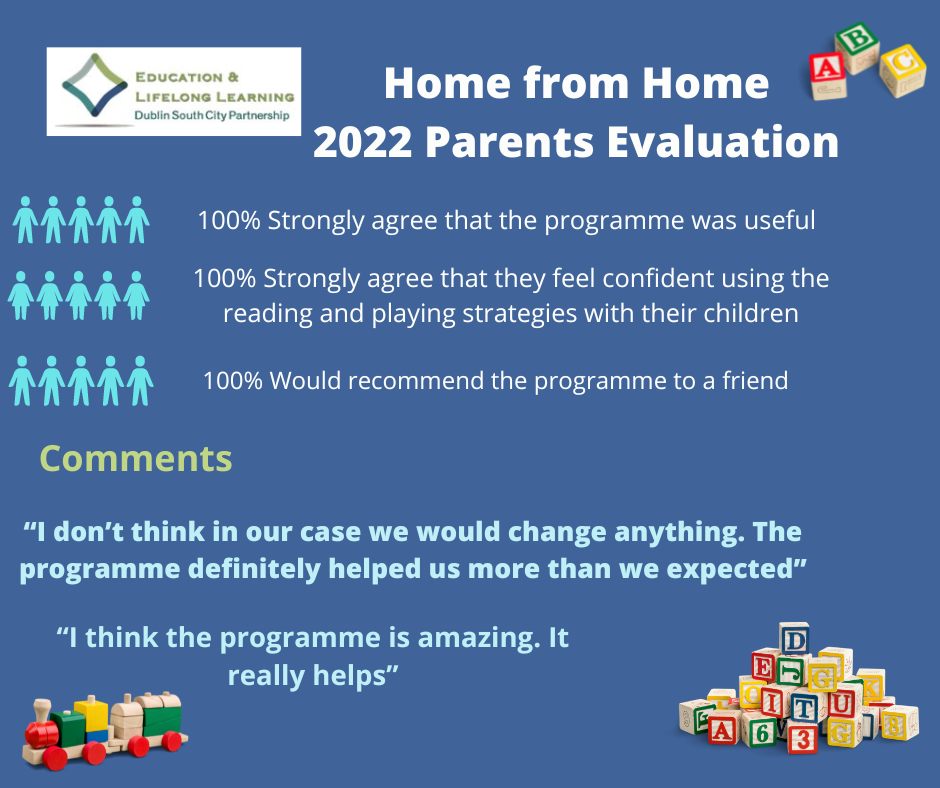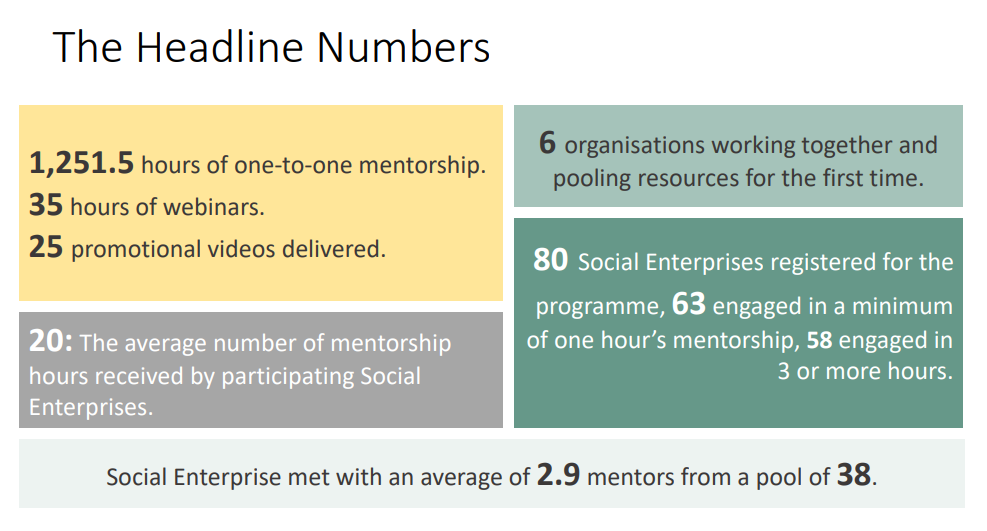Case Studies carried out on some of the services offered by Dublin South City Partnership
DSCP 2021 Apprenticeship Supports Case Study
Brief Synopsis of the Study:
The case study provides a demonstration of the work done by the Social Inclusion and Community Activation Programme (SICAP) from 2018 to 2022, focusing on a case study of the DSCP Employment Team and Education Team’s apprenticeship initiatives in 2021. The primary theme of the project is to support disadvantaged individuals in improving their lives through lifelong learning and labor market support.
The case study highlights two programs developed to address gaps in accessing apprenticeships: “Tricks of the Trade – Understanding Maths for Apprenticeships” and the “Online Apprenticeship Information Fair.” The Tricks of the Trade program aimed to improve numeracy skills and provide realistic expectations about apprenticeships through a 12-week online math program and online career talks with leading apprenticeship providers. The Online Apprenticeship Information Fair was organized to increase awareness of apprenticeship options and encourage female engagement in non-traditional trades.
The study discusses the program background, including the government’s Action Plan for Apprenticeships 2021-2025, which aimed to expand apprenticeship opportunities in Ireland. It also highlights the increasing demand for apprenticeships and the identified gaps in accessing information and unrealistic expectations among young people. The collaboration between the employment and education teams aimed to bridge these gaps and develop tailored programs.
It provides an overview of the programs, including the objectives, target outcomes, and activities. It also presents the timetable for the Tricks of the Trade program, which included math classes, career conversations, and training workshops. The engagement and outcomes of the programs are discussed, noting the impact of COVID-19 restrictions on program delivery and participant engagement. Despite challenges, the programs received positive feedback from participants, and improvements in numeracy levels and employment prospects were observed.
The Online Apprenticeship Information Fair is described as a response to the lack of information about apprenticeship options and application pathways. The event, initially planned as an in-person fair but moved online due to COVID-19, aimed to increase awareness of apprenticeship options, promote female engagement, and provide information about DSCP SICAP supports.
The planning of the online event is outlined, including the division of webinars based on different apprenticeship focuses and the involvement of various organizations and colleges. The document concludes by highlighting the collaborative approach between the employment and education teams and the success of the programs in addressing the identified gaps in apprenticeship access and information.
DSCP Communiversity Case Study 2022
Brief Synopsis of the Study:
This case study discusses the Communiversity Programme, which is a community-based adult education initiative in Ireland. The program aims to provide accessible and learner-centered education to individuals in disadvantaged communities, particularly those who have had negative experiences with the education system or face barriers to participation.
The program is funded through the Social Inclusion and Community Activation Programme (SICAP) and is delivered through a collaboration between Local Development Companies, Maynooth University, and Dublin City Libraries. The structure of the program involves offering 17-week courses on academic subjects in local libraries, with no assignments or accreditation. The program promotes peer learning and uses visual delivery methods to accommodate participants with low literacy skills.
The Dublin South City Partnership (DSCP) has been actively involved in the Communiversity program and has rolled it out in its catchment area. DSCP has targeted specific groups, such as older citizens and those facing social isolation, and has seen positive outcomes in terms of re-engagement with the community, building new connections, and increased confidence in pursuing further education.
The 2022 Communiversity program took place in St. Bernadette’s Parish Hall in Crumlin and catered to individuals facing social isolation. The program had a positive impact on participants, including reengaging them with the community, exposure to new subjects, and increased confidence in pursuing further studies.
Overall, the Communiversity Program has been successful in providing accessible and inclusive education to disadvantaged communities, fostering a love for learning, and supporting the personal and educational development of participants.
DSCP Home from Home Case Study 2022
Brief Synopsis of the Study:
The case study focuses on the implementation of the “Home from Home” program, which is an adaptation of the ParentChild+ program designed to address the needs of families experiencing homelessness in Dublin South City Partnership (DSCP) in Ireland.
The study highlights the importance of play in early childhood development and the challenges faced by disadvantaged families in providing adequate play and learning opportunities for their children. It emphasizes the significance of early intervention and the impact of the first years of a child’s life on their future outcomes.
The DSCP Lifelong Learning team has been implementing the ParentChild+ program since 2009 to promote learning through play for at-risk children and families.
However, due to the rising homelessness crisis and the specific needs of families living in family hubs, the Home from Home program was developed as an adapted version of ParentChild+ to cater to these families. The program aims to provide shorter, intensive sessions to alleviate the pressure felt by families experiencing homelessness.
The Home from Home program is a twelve-week program that targets families living in homeless hubs/shelters. Trained home visitors visit the families twice a week, modeling learning through play using developmentally appropriate books and toys.
The program also connects families to community resources and services, increasing social integration and support possibilities. The program’s structure and objectives aim to enhance children’s development, provide resources and knowledge to parents, and create a safe and stimulating environment for children and families.
The Home from Home program was rolled out in two family hubs in Dublin 12 and Dublin 6W, as well as in the home of a migrant family with a child with additional needs. The program aimed to bridge the gap between September 2021 and preschool entry for these children. Eight families registered for the program, with five completing the twelve-week cycle. The program received funding primarily from an ESB Generation grant, along with additional support from the Social Inclusion and Community Activation Programme (SICAP).
Throughout the program, the SICAP Early Years Worker played a crucial role in logistical aspects, such as family selection, intake meetings, support to home visitors, administration, resource management, and organizing a graduation ceremony at the end of the program.
At the conclusion of the program, the parents provided evaluations, highlighting positive outcomes, such as increased confidence for both parents and children, improved engagement in play, and access to support services. Home visitors reflected on their experiences and the impact of the program, including addressing complex situations and cultural shifts.
Overall, the case study demonstrates the importance of play-based learning in early childhood development and the positive impact of tailored programs like Home from Home for families experiencing homelessness. It highlights the role of local development organizations in addressing the unique needs of their communities and the significance of collaboration and support from various stakeholders in implementing successful programs.
Frontline Bikes 2021 Final Version
Brief Synopsis of the Study:
The case study focuses on the impact of the Social Inclusion and Community Activation Programme (SICAP) on Frontline Bikes Inchicore, a social enterprise based in Dublin, Ireland. The SICAP program aims to support communities and target groups in addressing social exclusion and equality issues, developing local community groups, and creating more sustainable communities. The specific thematic area of focus is supporting social enterprises that contribute to SICAP outcomes.
Dublin South City Partnership (DSCP) has been supporting social enterprises through the SICAP program since 2015, and by 2021, they have supported 32 social enterprises.
In this example, Frontline Bikes Inchicore is a social enterprise established by Frontline Make Change (FMC), a drug and alcohol support service. FMC recognized the need for employment opportunities for individuals recovering from addiction and identified bicycle repair and sales as a viable social enterprise model. With the help of SICAP enterprise supports provided by Dublin South City Partnership (DSCP), Frontline Bikes was launched in October 2020.
The SICAP enterprise supports received by Frontline Bikes played a significant role in their success. These supports included a feasibility study, mentoring and advice on business management, targeted training, funding opportunities, and assistance in increasing activities delivered to the target groups. The supports helped Frontline Bikes establish a commercially viable business model, streamline operations, develop marketing strategies, and expand their reach within the community.
It emphasizes the importance of the mentoring and advice provided by the DSCP Social Enterprise Manager, which helped Frontline Bikes in areas such as accounting, marketing, retail, and public relations.
The impact of Frontline Bikes goes beyond economic benefits. The social enterprise provided employment opportunities for individuals in recovery, contributing to their reintegration into society and improving their self-esteem. It also fostered stronger family relationships, coping mechanisms, and reduced the rates of relapse and criminal activity among the employed individuals. Additionally, Frontline Bikes created networking opportunities with local stakeholders, increased awareness of its social mission, and demonstrated profitability through increased sales.
The case study highlights the challenges faced by Frontline Bikes during the COVID-19 pandemic and how SICAP supports helped the enterprise adapt to the restrictions and ensure the safety and well-being of its staff. The collaboration with the Dublin Social Enterprise Community of Practice (SE-COP) further provided mentoring and training opportunities for social enterprises in the area.
Overall, the study demonstrates the positive impact of SICAP enterprise supports on Frontline Bikes Inchicore, showcasing how social enterprises can contribute to social and economic development, support vulnerable individuals, and create sustainable communities. It showcases the importance of collaboration, networking, and customized support in the success of social enterprises.









